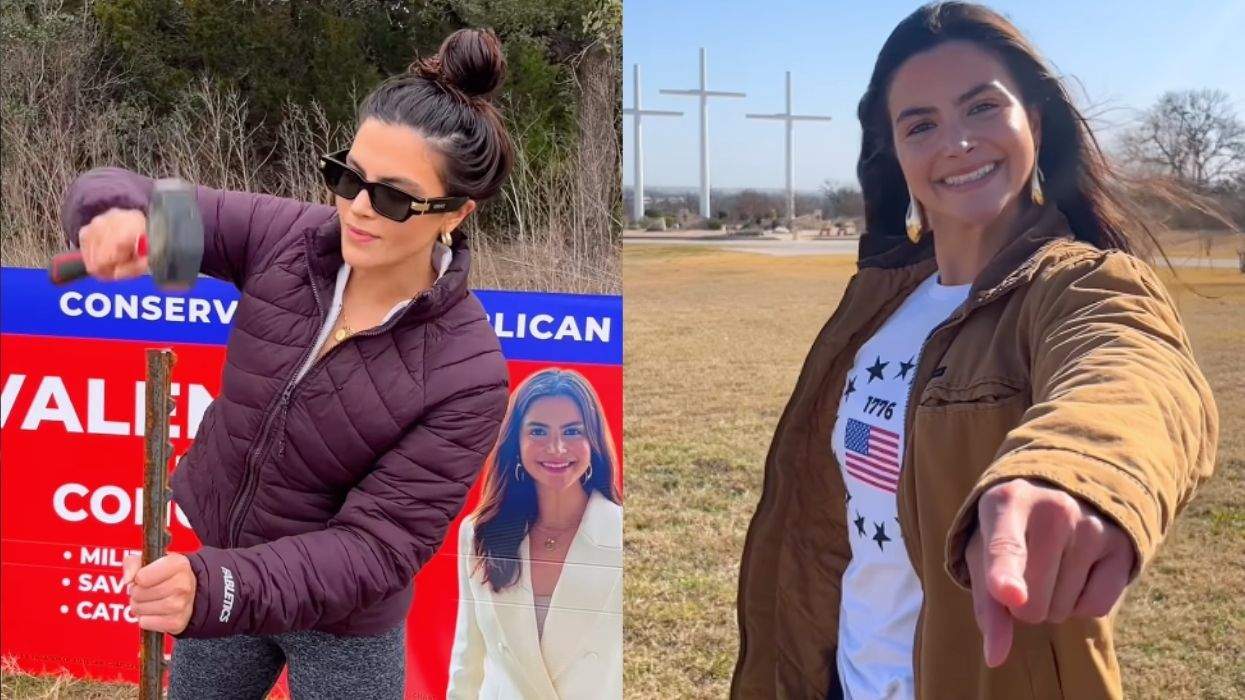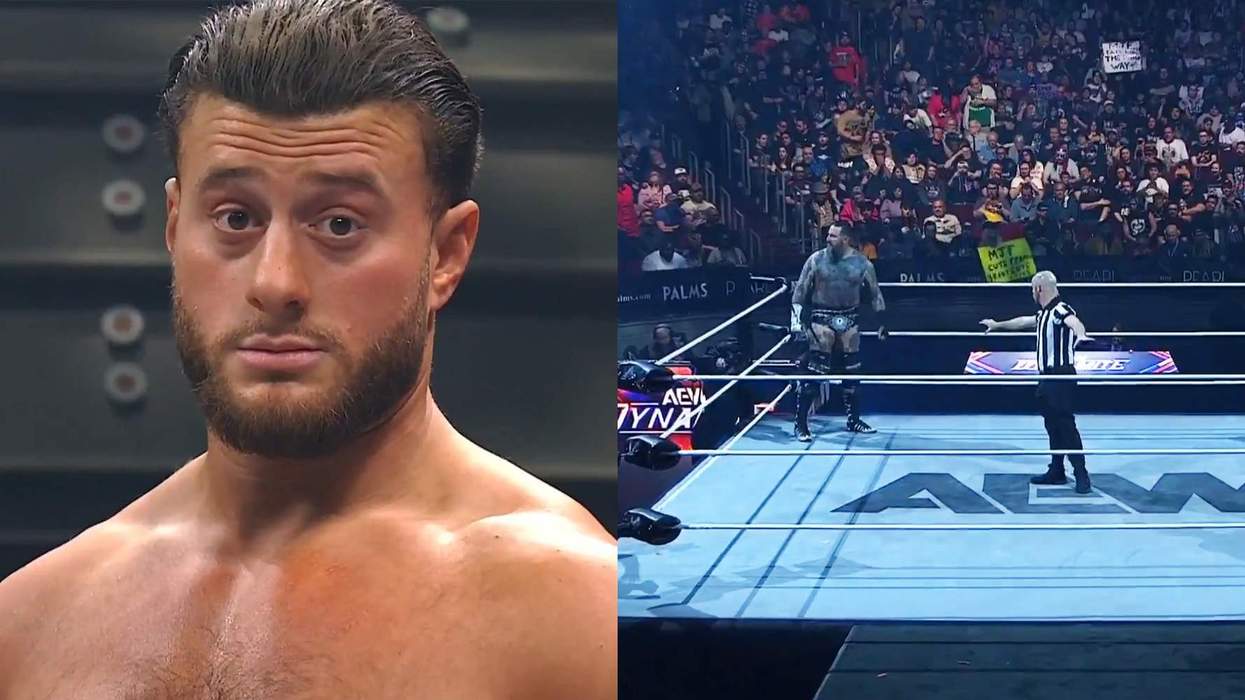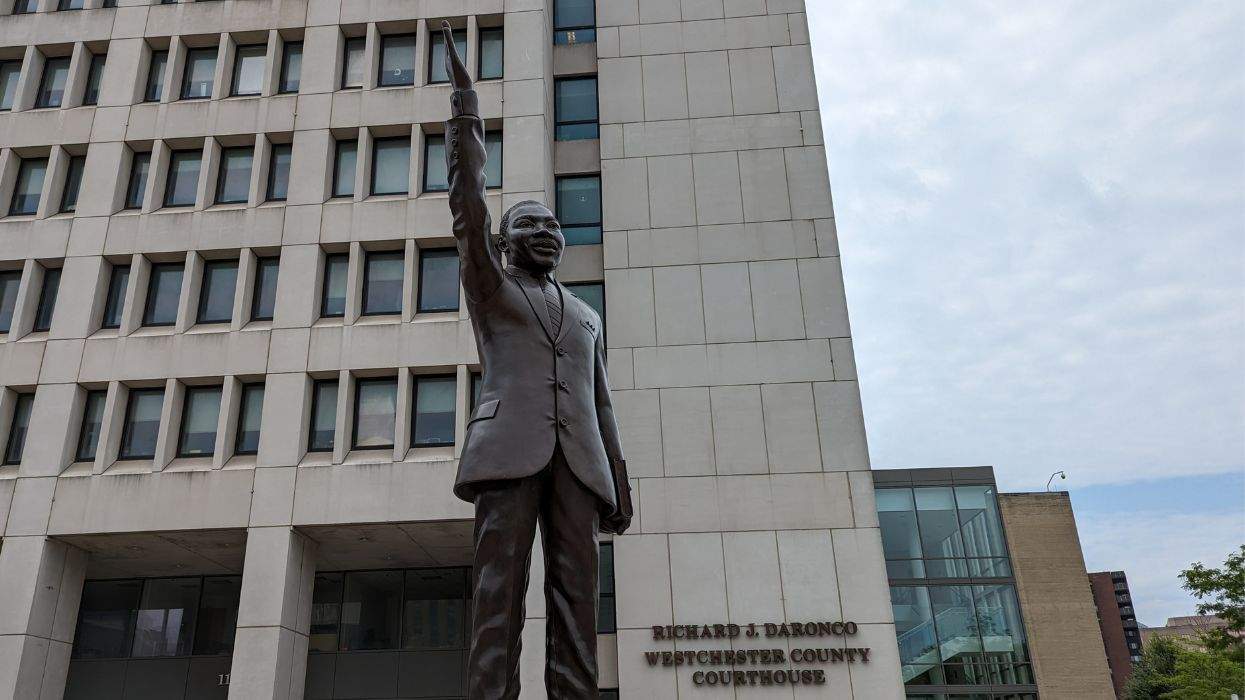"There is no single factor more important to whom you support for president than the Supreme Court," says Kate Kendell, executive director of the National Center for Lesbian Rights.
In other words, what matters most is not the candidates' stance on health care reform, the Iraq war, or the Defense of Marriage Act but their potential picks for the highest court in the land.
"It's very troubling," says Kendell, "that for the past several election cycles there seems to be very little understanding about how the composition of the court could change very negatively -- not just for LGBT people but for a whole range of social justice issues."
Of the nine current Supreme Court justices, six -- John Paul Stevens, Antonin Scalia, Anthony Kennedy, David Souter, Ruth Bader Ginsburg, and Stephen Breyer -- are over 65. And while there's no requisite retirement age on the bench (and none of the court's members have indicated publicly that they're planning to step down), the next president may well have the opportunity to appoint at least one new justice.
Thomas M. Keck, a political science professor at the Maxwell School at Syracuse University, says activists on both side of the political fence often use "hyperbole" when speaking about the importance of the next appointment to the Supreme Court. But this election year it's actually critical. "I think it's [potentially] a very key vacancy," he says, "particularly for LGBT people."
That's because the two tracks of law that have led to the greatest legal gains in LGBT rights -- the right to privacy and equal protection under the law -- are particularly vulnerable right now.
The right to privacy was integral in cases such as Lawrence v. Texas, a landmark 6-3 decision in 2003 that determined individuals had a right to engage in homosexual conduct without the intervention of the government. The decision overturned a 1986 ruling by the court upholding the constitutionality of Georgia's sodomy law. Equal protection figures in cases such as Romer v. Evans, in which the court ruled that a Colorado state law forbidding the enactment of legal protections against discrimination based on sexual orientation violated the 14th Amendment.
Conservative Supreme Court justices such as Clarence Thomas and Antonin Scalia, who are often referred to as "strict constructionists" for their belief that the court should base its ruling on the original intended meaning of the Constitution, have often argued that the document does not guarantee a general right to privacy for Americans or equal protection for gays and lesbians.
And legal scholars and court watchers say that the court's newest members, Chief Justice John Roberts and Justice Samuel Alito, both of whom were appointed by George W. Bush, have a similar philosophy.
Ellen Andersen, an assistant professor of political science at Indiana University-Purdue University Indianapolis says both of these legal lines will be at issue -- and could possibly be overturned -- if any of the court's more liberal justices, or moderate justices Souter and Breyer, are replaced by someone with a more conservative view of jurisprudence.
James Esseks, litigation director for the American Civil Liberties Union's LGBT Project, worries that a more conservative court could attempt to overturn Lawrence v. Texas. "It wouldn't be easy," he admits. "But it's not impossible. The Supreme Court can make a big difference toward what progress we make as a community, and what Lawrence means is very much up for grabs."
LGBT activists have often argued that the court's ruling on Lawrence has broader legal equal protection implications and used it to bolster their arguments for equalizing marriage rights and ending the military's "don't ask, don't tell" policy.
However, if the Supreme Court -- along with other lower federal and state courts -- interprets the ruling in a more narrow, case-specific way, it could make it more difficult to use the decision to secure and expand the rights of gays and lesbians.
Before the death of former chief justice William Rehnquist in September 2005 and the retirement of Justice Sandra Day O'Connor in early 2006, the court went through one of its longest periods of stability since the early 19th century.
And while the newest members of the Supreme Court, Roberts (who stepped in for Rehnquist) and Alito (who replaced O'Connor) have only one full term under their belts, most court watchers say it hasn't been difficult to gauge that the wind is blowing to the right.
"We're getting a pretty good sense of their jurisprudence," says Andersen, "and it's not good news for LGBT rights." She points out that the justices' 5-4 ruling last year upholding the federal Partial-Birth Abortion Ban Act -- a reversal of an earlier decision by the previous court -- can serve as a bellwether. "I can't imagine that they're going to go one way with abortion and another way with gay rights," she says.
NCLR's Kate Kendell agrees. "This court has almost universally sided with government and big business, and those decisions do not bode well for how the court will decide on the next LGBT case," she explains. "The damage that has been done by President Bush to civil liberties in general has been incalculable."
With the new court now consisting of four clear conservatives (Roberts, Alito, Scalia, and Thomas) and four solid moderates (Ginsburg, Breyer, Souter, and Stevens), Kennedy has become the key vote to tip split decisions one way or the other. Appointed by Republican President Ronald Reagan, Kennedy can often be unpredictable and progressive on social issues, particularly when it comes to LGBT rights. He wrote the majority opinions in both Romer v. Evans and Lawrence v. Texas.
"In some ways," says Andersen, "he's an unlikely savior for LGBT issues." He's even angered some of the Republican Party's right wing by siding with more moderate members of the court. Says Keck: "He's not a reliable conservative."
However, if any of the more left-leaning moderate justices are replaced in the next four years, Kennedy's role as crucial swing vote will be significantly muted. Says Andersen: "If we get one more justice to the right of Kennedy, we're done for."
A conservative majority would prove fatal to LGBT rights in a number of cases expected to reach the Supreme Court in the near future. Many court watchers feel a case involving the military's "don't ask, don't tell" policy, which allows gay and lesbian soldiers to serve as long as they don't reveal or discuss their sexuality while on duty, is likely to make its way to the Supreme Court in the next four years.
A case arguing the use of religious justification to treat people -- LGBT or otherwise -- differently may also be in the court's future, says Esseks. For example, a doctor may refuse certain reproductive services to a lesbian on the grounds that he or she has a personal "religious objection to homosexuality," thereby allowing the doctor to refuse equal treatment under the law due to religious conviction. If the court rules that behavior permissible, he says, it would "make a humongous difference to the LGBT community."
Freedom of speech on public school campuses has already begun making a legal stir. Most recently, the high court ruled 5-4 in Morse v. Frederick (otherwise known as the "Bong Hits For Jesus" case) that schools can limit the free speech of students if it can be seen as promoting illegal drug use.
As with the court's decision in Lawrence, the question still remains whether the ruling can be applied to a broader spectrum of political or controversial speech -- like pro-gay slogans on T-shirts -- that administrators deem offensive or inappropriate in schools.
Esseks said some cultural groups may try to use the ruling as a way to not only limit speech but also stifle LGBT "visibility" on school campuses. Esseks adds that "very conservative groups" understand the significance of the Supreme Court better than anyone -- and this mobilizes them. "They want Supreme Court appointments because they have an agenda to keep us invisible and in the closet," he says. "They clearly see the relevance: Appointments to the court make a difference."
One issue LGBT legal activists hope they won't see get to the Supreme Court is gay marriage. Instead of rushing a gay marriage case up through the federal court system, they're carefully looking to build a bounty of favorable rulings at the state level before bringing the right case before the Supreme Court.
And while equal marriage advocates scored an impressive and important victory when the California supreme court ruled the state can no longer exclude same-sex couples from civil marriage, legal scholars say it's not a candidate to become the first gay marriage case to be argued before the federal Supreme Court.
The same-sex marriage litigation that took place in California over the last four years -- and led to the historic decision this May -- has "no chance of going to the U.S. Supreme Court because it rests entirely on state law," says Keck. He adds that lawyers involved in that case were careful to base their arguments regarding the legality of same-sex marriage on California's state constitution only. The Supreme Court will only hear cases that involve or challenge federal law or the U.S. Constitution. Keck says it was an intentional strategy on the part of equal marriage advocates who don't think the time is right for gay marriage to reach the nation's highest court.
However, what happens if California voters approve a ballot initiative this November to amend the state constitution restricting marriage to a man and a woman, thereby contradicting the ruling of the state supreme court? "There are a lot of unknowns about that," says Jon Davidson, legal director for Lambda Legal. "If we're unable to defeat it -- and we are hoping that won't happen -- we'll follow the smartest course."
While LGBT activists are staying mum about what that course might be for fear of tipping off the opposition, Davidson is quick to note that bumping the case up may not be wise. "The Supreme Court has a history of not going too far ahead of what the people are thinking," he says. "So it's probably not a great idea right now."
"A failed lawsuit can sometimes be worse than no lawsuit at all," says Keck. "If the court rules against you, that's a significant setback."















